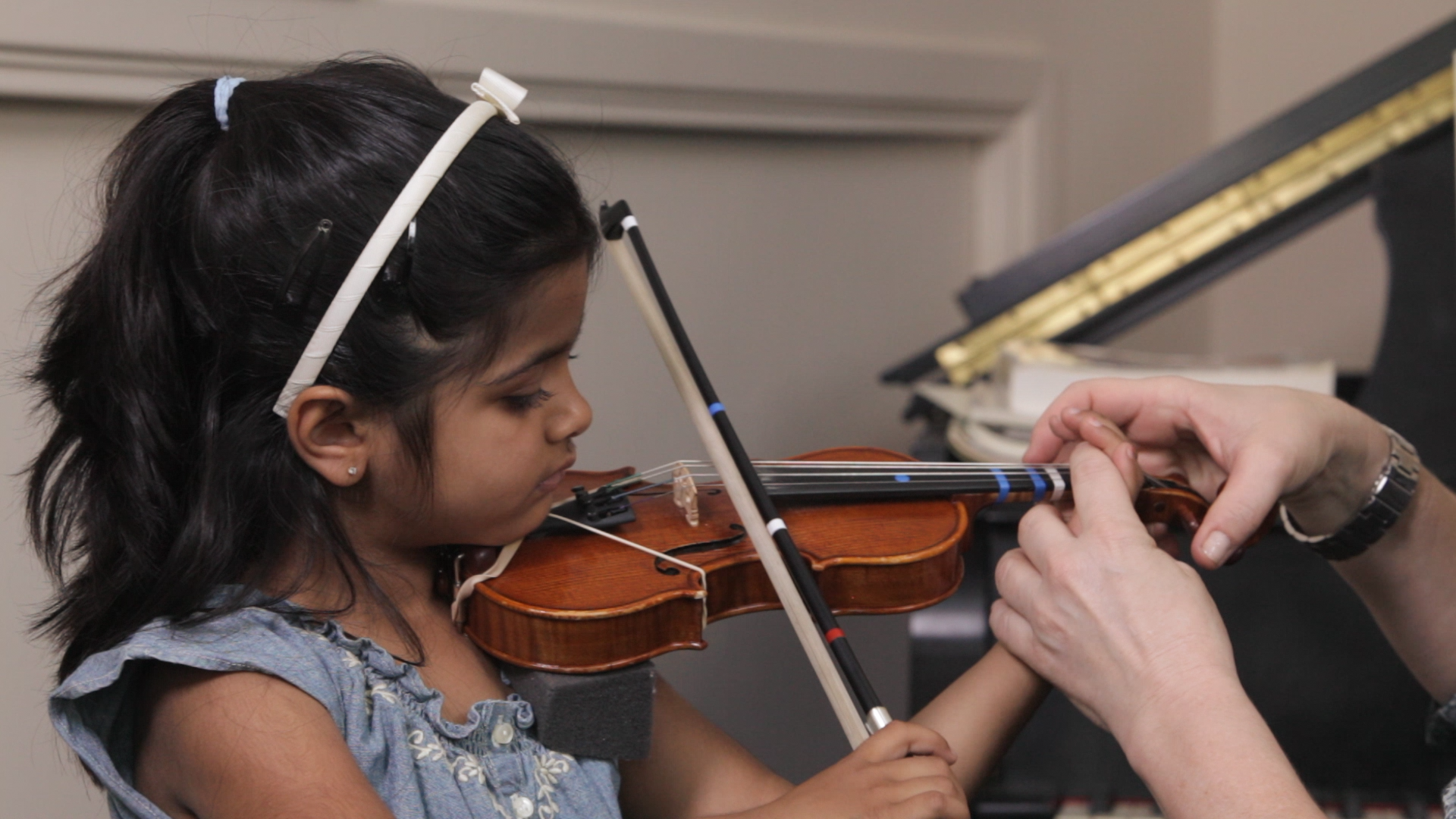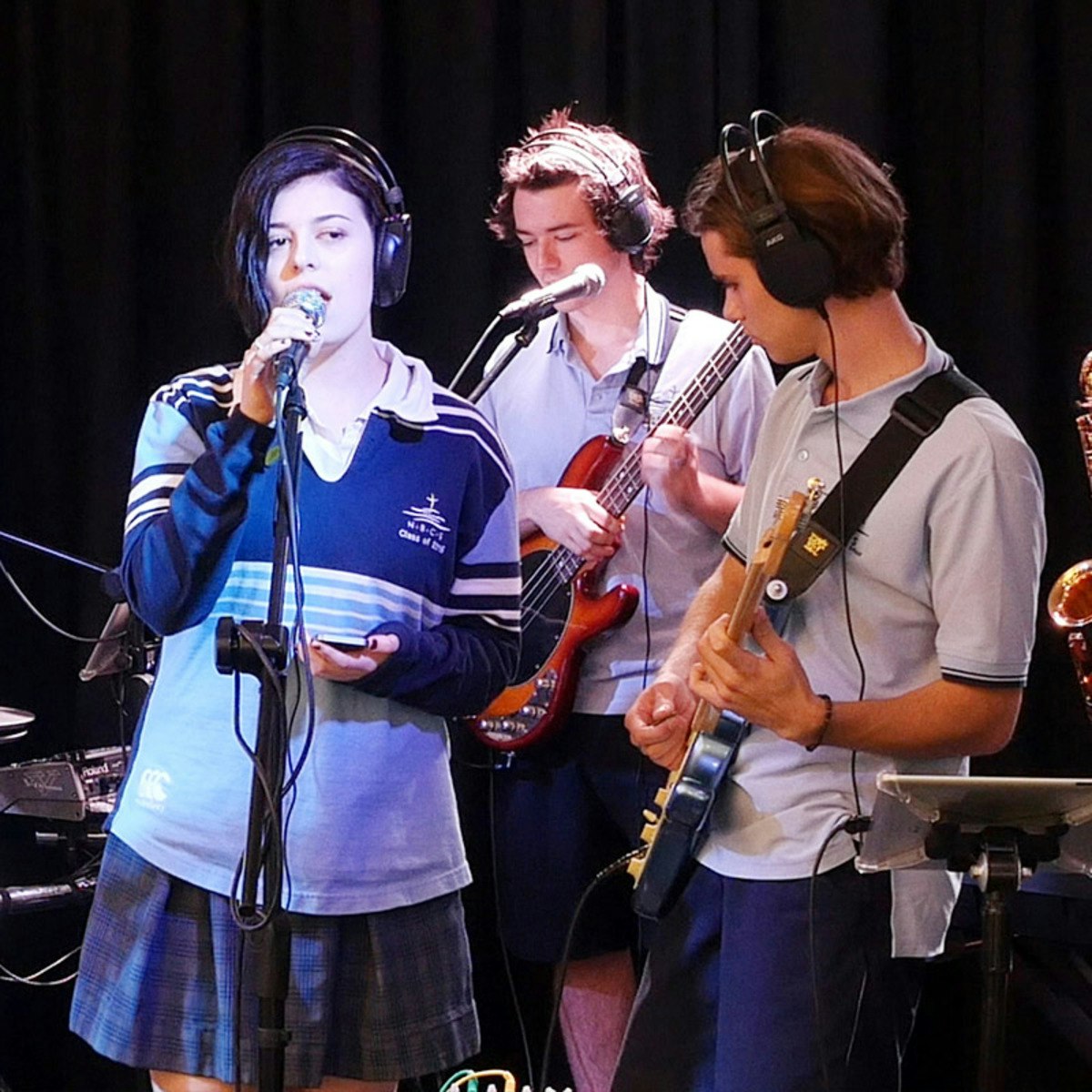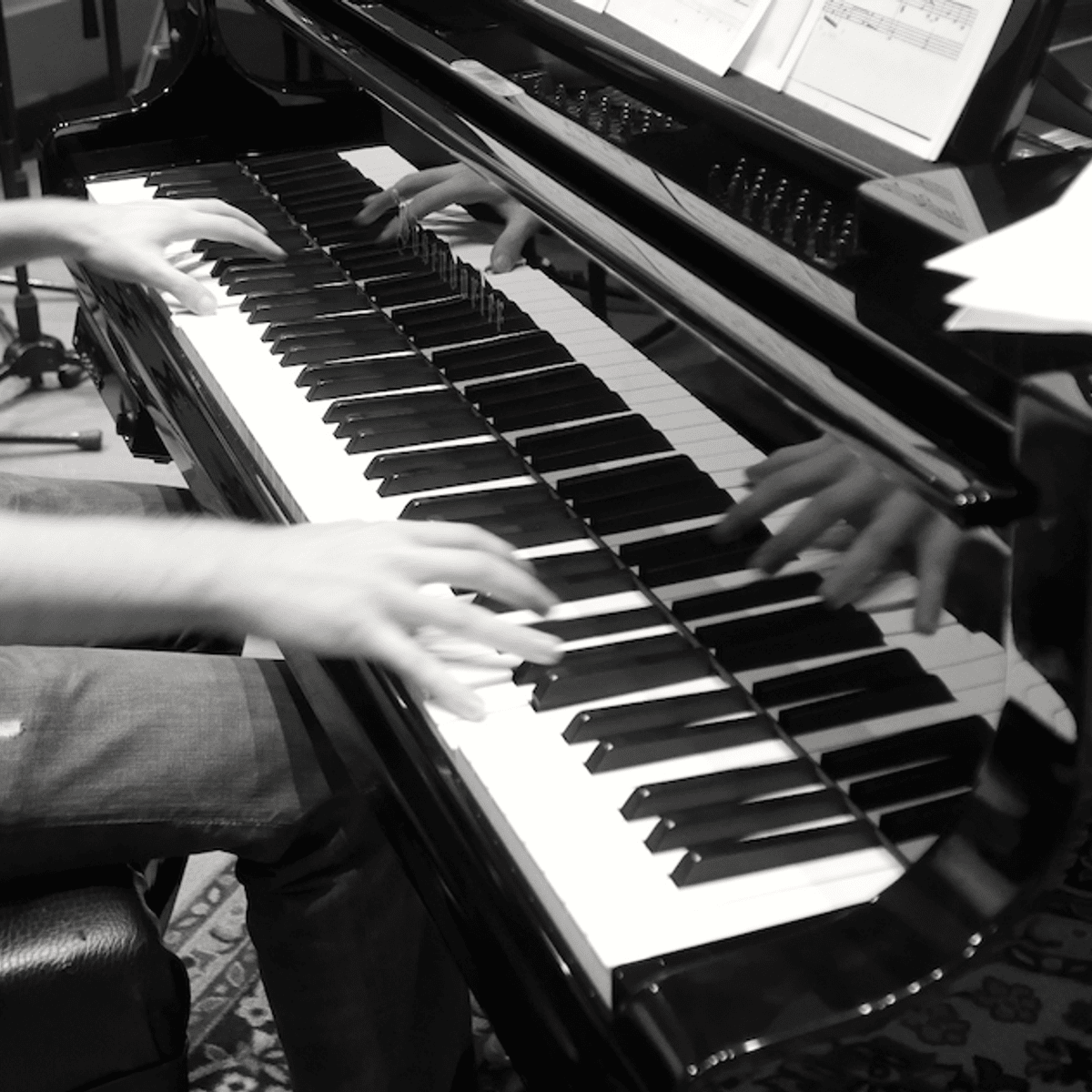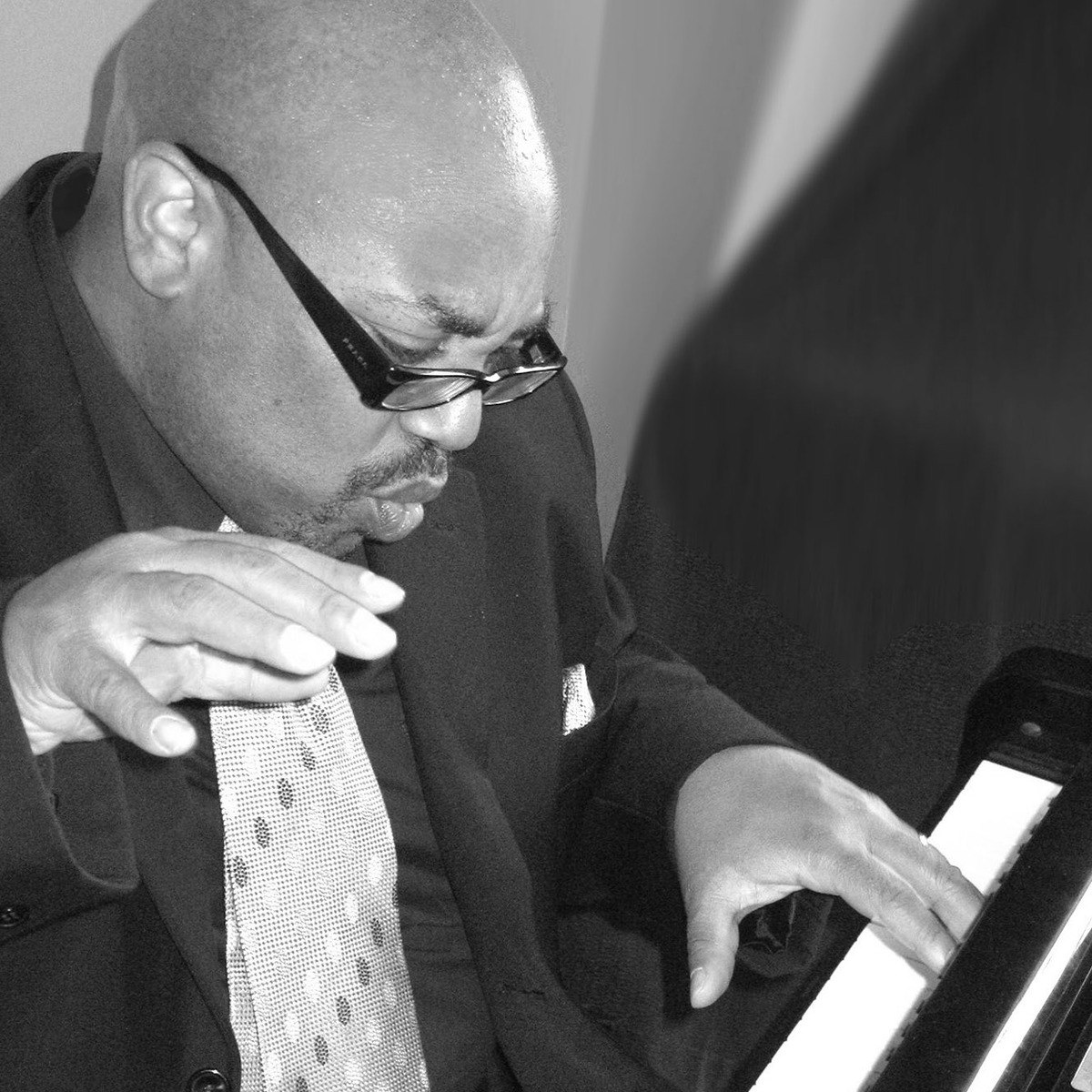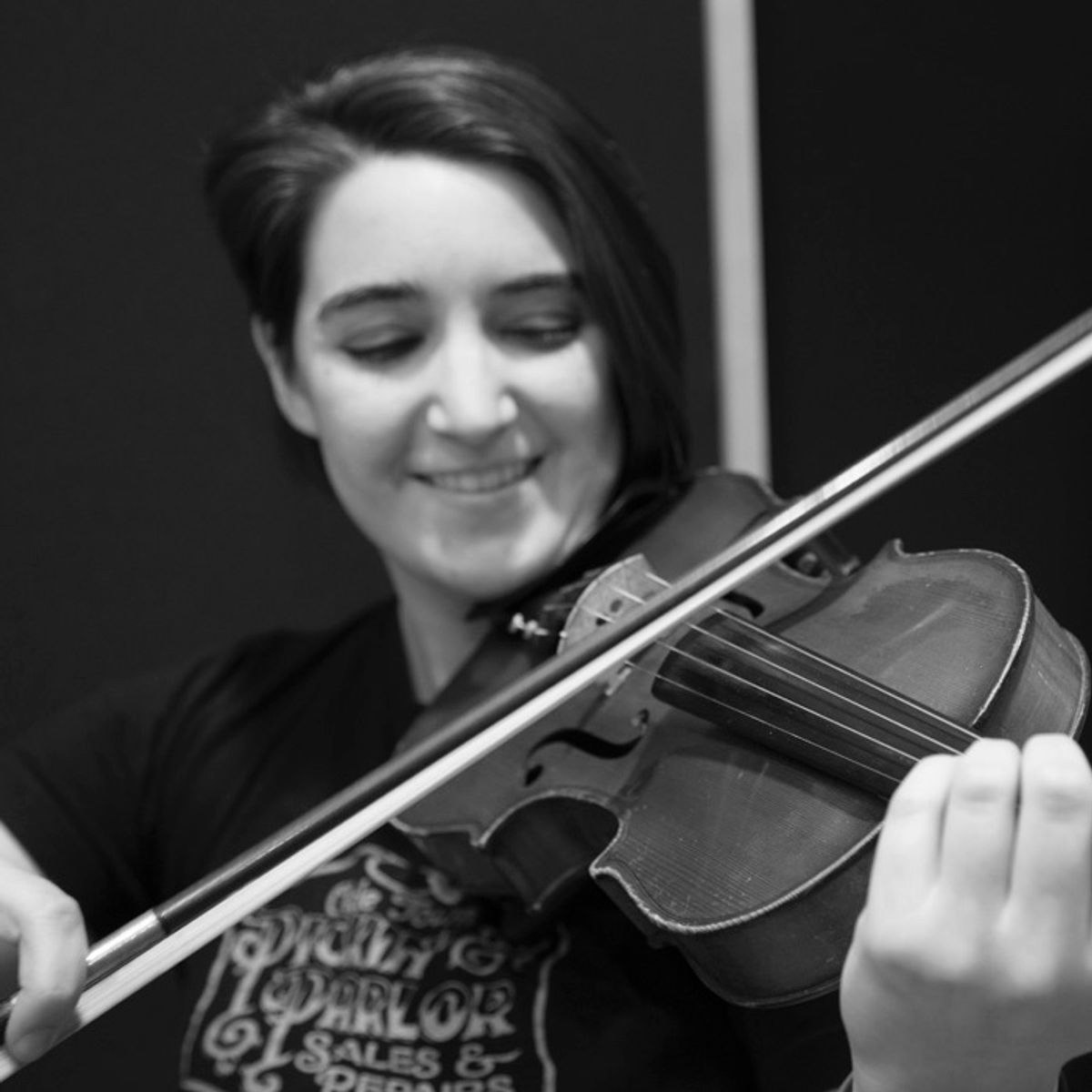Music Teacher
Music Teacher
A Music Teacher is an educator specializing in guiding students through the theory, practice, and appreciation of music. They work with learners of various ages and skill levels, fostering musical talent, understanding, and a lifelong connection to the arts. Their role extends beyond simple instruction; they inspire creativity, discipline, and collaborative skills through the universal language of music.
Imagine the satisfaction of seeing a student master a challenging piece, the energy of directing a school orchestra in performance, or the quiet focus of helping someone compose their first melody. These moments are central to the experience of a music teacher. This career offers the chance to share a deep passion for music, witness individual growth firsthand, and contribute significantly to the cultural enrichment of schools and communities.
What Does a Music Teacher Do?
The work of a music teacher combines artistic skill with pedagogical expertise. It involves planning and delivering instruction, assessing student progress, and managing learning environments, all centered around the diverse world of music.
Daily Tasks and Core Responsibilities
A typical day for a music teacher often involves preparing lesson plans tailored to specific learning objectives and student abilities. This might include selecting repertoire, designing exercises for technical proficiency, or creating activities to explore music theory concepts. Direct instruction is key, whether teaching individual students instrumental techniques, leading group rehearsals for choirs or bands, or explaining historical context.
Beyond teaching, music teachers spend time evaluating student performance through various methods, such as practical assessments, written tests, or observation during rehearsals. Administrative tasks like maintaining student records, communicating with parents, managing instrument inventories, and organizing concerts or recitals are also common responsibilities.
Classroom management is essential, requiring teachers to create a positive and productive learning atmosphere. This involves setting clear expectations, motivating students, and adapting teaching strategies to keep learners engaged and progressing effectively.
For musicians interested in the foundations of music theory, which is crucial for teaching, several comprehensive courses are available. Understanding these principles deeply allows teachers to explain complex ideas clearly.
Variations Across Different Settings
The specific duties of a music teacher can vary significantly depending on the work environment. In K-12 schools, teachers often manage large classes, direct school-wide ensembles like bands or choirs, and adhere to state curriculum standards. Their focus might be broader, aiming to provide a foundational music education to all students, including general music appreciation, basic instrument skills, and choral singing.
Music teachers in higher education, such as colleges or universities, typically specialize in a specific area like performance (instrument or voice), music theory, music history, or music education itself (training future teachers). Their roles involve teaching undergraduate and graduate courses, mentoring students, conducting research or creative work, and contributing to the academic department.
Private studio teachers usually work one-on-one or in small groups, focusing intensely on developing a student's proficiency on a particular instrument or voice. They have more flexibility in curriculum and scheduling but also need business skills to manage their studio, attract students, and handle billing. Community music schools or arts centers offer another setting, often involving teaching diverse age groups and skill levels in group classes or private lessons.
Curriculum Development and Assessment
Developing an effective curriculum is a cornerstone of music teaching. This involves selecting appropriate musical materials, sequencing learning activities logically, and aligning instruction with educational goals, whether set by a school district, university department, or individual studio philosophy. Teachers must consider the age, background, and skill level of their students, creating pathways that build skills progressively.
Assessment in music education takes many forms. Performance-based assessments, where students play an instrument, sing, or conduct, are common for evaluating technical skill and musical expression. Written tests might assess knowledge of music theory, history, or terminology. Teachers also use formative assessments, like observing students during practice or rehearsals, to provide ongoing feedback and adjust instruction.
Effective assessment isn't just about grading; it's about understanding student learning and providing meaningful feedback to foster improvement. It requires clear criteria, consistent application, and a focus on growth. Designing varied assessments helps capture the multifaceted nature of musical ability.
Becoming a Music Teacher: Educational Paths
Pursuing a career as a music teacher typically requires a combination of musical proficiency, pedagogical knowledge, and formal qualifications. The specific path often depends on the type of teaching role and the educational setting you aim for.
Undergraduate Studies
For those aspiring to teach in K-12 schools in the United States, a bachelor's degree is usually the minimum requirement. Common degree paths include a Bachelor of Music Education (BME) or a Bachelor of Music (BM) with a concentration in education. These programs combine intensive musical training (instrumental/vocal performance, music theory, music history) with coursework in educational psychology, teaching methods, and classroom management.
Alternatively, some pursue a Bachelor of Education (BEd) with a specialization or major in music. These programs often place a stronger emphasis on general educational principles while still requiring significant musical study. Regardless of the specific degree title, programs leading to K-12 certification include student teaching experiences, providing practical classroom exposure under supervision.
If you are exploring the foundational elements required, understanding harmony and musical structure is key. Many undergraduate programs build upon these core concepts.
Graduate Programs and Specialization
Advanced roles, particularly in higher education or specialized K-12 positions (like curriculum development), often benefit from or require graduate studies. A Master of Music (MM) or Master of Arts (MA) in Music Education can deepen pedagogical expertise, research skills, and musical knowledge. These programs often allow for specialization in areas like choral conducting, instrumental pedagogy, or music technology integration.
For those aiming for university professorships or significant leadership roles, a Doctor of Philosophy (PhD) or Doctor of Musical Arts (DMA) in Music Education is typically necessary. PhD programs usually focus more on research and scholarship, while DMA programs often blend performance or conducting expertise with pedagogical study and research.
Graduate studies provide opportunities to delve deeper into specific areas of interest, contribute to the field through research or creative work, and qualify for more advanced positions in education and administration.
Certification and Licensure
Teaching in public K-12 schools in the U.S. requires state-issued teaching certification or licensure. Requirements vary significantly by state but generally involve completing an approved teacher preparation program (usually at the bachelor's or master's level), passing standardized tests (covering basic skills, subject matter knowledge, and pedagogy), and undergoing a background check.
Some states offer alternative routes to certification for individuals who have a bachelor's degree in music but did not complete a traditional teacher education program. These pathways often involve intensive pedagogical training, mentorship, and supervised teaching experience. It's crucial to research the specific requirements of the state where you intend to teach early in your planning.
Private studio teachers or those working in community music schools may not legally require state certification, but credentials, degrees, and demonstrated expertise are essential for building credibility and attracting students. Certifications from professional music teacher organizations can also enhance a private teacher's profile.
Continuing Education and Professional Development
The field of music and education is constantly evolving, making lifelong learning essential for music teachers. Continuing education can take many forms, including attending workshops, participating in masterclasses with renowned performers or educators, and enrolling in specialized courses (online or in-person).
Professional music education organizations often host conferences and provide resources for ongoing development. Staying current with new teaching methodologies, music technology, repertoire, and research findings helps teachers remain effective and inspired throughout their careers. Many school districts also require teachers to complete a certain number of professional development hours periodically to maintain their certification.
Exploring new instruments or deepening proficiency in secondary instruments can also broaden a teacher's skill set and versatility.
These courses offer focused training on specific instruments, useful for teachers looking to expand their own skills or better guide students.
Online Learning and Skill Development
The digital age has opened up numerous avenues for learning music and music pedagogy outside traditional classrooms. Online courses, digital resources, and self-directed projects offer flexible and accessible ways to build foundational skills, supplement formal training, or transition into the field.
Developing Skills Through Online Resources
Online platforms provide a wealth of courses covering music theory, instrument instruction, music history, ear training, and even aspects of music pedagogy. These resources can be invaluable for aspiring teachers building their knowledge base or current teachers looking to refresh skills or explore new areas. Learners can study at their own pace and often access instruction from experts worldwide.
For those new to an instrument or music theory, online courses offer structured learning paths from beginner to advanced levels. You can find courses for virtually any instrument, from piano and guitar to cello and violin. These often include video lessons, exercises, and sometimes opportunities for feedback.
Platforms like OpenCourser aggregate thousands of courses, allowing learners to browse music-related subjects easily. Features like saving courses to a list and comparing syllabi help learners organize their self-study plans effectively.
These courses provide foundational skills in specific instruments, perfect for self-paced learning or supplementing traditional lessons.
Self-Guided Projects and Practical Application
Beyond formal courses, self-directed projects are crucial for developing practical skills. Aspiring teachers can arrange existing musical pieces for different instruments or ensembles, forcing them to apply music theory and understand instrumentation. Composing original music, even simple pieces, hones creative skills and deepens theoretical understanding.
Creating teaching demonstrations or sample lesson plans helps practice pedagogical thinking. Recording oneself teaching a concept or technique can provide valuable self-assessment opportunities. Offering to teach friends, family, or community groups informally can build confidence and provide real-world experience, even before formal employment.
Building a portfolio of arrangements, compositions, or recordings of one's own performance can also be beneficial, showcasing skills to potential employers or students. These projects bridge the gap between theoretical knowledge and practical application.
Developing musicianship often involves practical application, such as composing or arranging. These resources support that process.
Supplementing Formal Training
For those pursuing formal degrees, online resources can effectively supplement their education. If a university course moves quickly through a specific music theory topic, an online course might offer a deeper dive or alternative explanation. Online masterclasses can provide exposure to different teaching styles and performance interpretations beyond one's primary instructors.
Digital tools for music notation (like Sibelius, Finale, or MuseScore), digital audio workstations (DAWs like Logic Pro X, Ableton Live, Pro Tools), and ear training software are essential in modern music education. Online tutorials and courses can help students master these technologies, which are increasingly integrated into music classrooms and professional practice.
Using online platforms to connect with other musicians and educators globally can also broaden perspectives and provide networking opportunities. The blend of formal education and self-directed online learning can create a well-rounded, adaptable music educator.
Mastering music technology is increasingly important. These courses cover popular DAWs and music production concepts.
These books offer structured methods for guitarists, complementing online or formal instruction.
Career Path and Advancement
A career as a music teacher offers various pathways for growth and development, from initial entry-level positions to leadership roles within educational institutions or the broader arts community.
Entry-Level Opportunities
Graduates typically start in roles like assistant band or choir director, general music teacher in an elementary school, or adjunct instructor at a community college or music school. Private studios often begin small, with teachers building their student base gradually. These initial positions provide crucial hands-on experience in teaching, classroom management, and navigating the specific environment of an educational institution.
Early career teachers focus on refining their instructional techniques, developing curriculum materials, and building relationships with students, colleagues, and parents. Mentorship from experienced teachers can be particularly valuable during this phase. Gaining experience with different age groups and ensemble types can also broaden future opportunities.
Success in entry-level roles often depends on demonstrating strong musical skills, effective teaching practices, reliability, and a collaborative spirit within the school or organization.
Mid-Career Advancement
With several years of experience, music teachers can pursue various advancement opportunities. Within K-12 schools, this might involve becoming a lead teacher, department head, or music curriculum specialist for a district. These roles often involve mentoring new teachers, coordinating music programs across multiple schools, developing curriculum, and managing budgets.
In higher education, advancement typically follows academic ranks (e.g., Assistant Professor, Associate Professor, Full Professor), requiring achievements in teaching, research or creative activity, and service to the institution. Experienced private studio teachers might expand their business, hire other instructors, or gain recognition through student achievements in competitions or performances.
Pursuing a master's degree or additional certifications can often facilitate mid-career advancement by deepening expertise and qualifying teachers for specialized roles or higher pay scales.
Leadership and Related Roles
Experienced music educators may move into broader leadership positions. This could include roles like Arts Administrator for a school district, non-profit arts organization, or performing arts center. Some become directors of conservatories or community music schools, overseeing all aspects of the institution's operations.
Others might leverage their expertise in music education consulting, curriculum writing for publishers, or developing educational resources. University faculty can progress to roles like department chair or dean within a college of music or education. Some experienced teachers also transition into related fields like music therapy (requiring specific certification) or arts advocacy.
These leadership paths often require strong administrative, financial management, and strategic planning skills, in addition to extensive experience and credibility in the field of music education.
Salary Expectations and Influencing Factors
Salaries for music teachers vary widely based on factors like geographic location, type of institution (public school, private school, university, private studio), level of education, years of experience, and specific responsibilities.
According to the U.S. Bureau of Labor Statistics (BLS), the median annual wage for high school teachers (across all subjects) was $69,660 in May 2023. Elementary and middle school teacher salaries are often comparable, though variations exist by district. University professor salaries differ significantly based on rank, institution type, and field.
Private studio teachers' incomes depend heavily on the number of students, hourly rates charged, and business expenses. Geographic location plays a major role; salaries tend to be higher in metropolitan areas with higher costs of living. Teachers with advanced degrees and more experience typically command higher salaries within established pay scales in schools and universities.
Essential Skills for Music Teachers
Success as a music teacher relies on a blend of technical musical abilities, effective teaching strategies, and strong interpersonal skills. Mastering these areas allows educators to inspire and guide students effectively.
Technical Musical Proficiency
A strong foundation in music is non-negotiable. This includes proficiency on at least one primary instrument or voice, sufficient to demonstrate techniques and model good musical practice. Keyboard skills are often highly valuable, even for non-pianists, as the piano is frequently used for demonstrating harmony, accompanying students, and leading rehearsals.
Deep knowledge of music theory, including harmony, counterpoint, form, and analysis, is essential for explaining how music works and for selecting appropriate repertoire. A broad understanding of music history and diverse musical styles enables teachers to provide context and expose students to a wide range of musical experiences.
Skills in sight-reading, ear training, and improvisation are also crucial for demonstrating musical concepts and guiding student development effectively.
These courses focus on core theoretical knowledge and practical musicianship vital for any music educator.
Understanding notation is fundamental. This book provides a solid grounding.
Pedagogical Skills and Teaching Methods
Knowing music is different from knowing how to teach music. Effective pedagogical skills involve understanding how students learn at different developmental stages and adapting instruction accordingly. This includes employing differentiated instruction techniques to meet the diverse needs of learners within a single classroom or studio.
Strong classroom management skills are vital, especially in group settings, to create an environment conducive to learning. This involves establishing clear routines, engaging students actively, and addressing behavioral issues constructively. Expertise in specific instructional methods, such as Orff Schulwerk, Kodály, or Dalcroze Eurhythmics for younger learners, or specific instrumental pedagogies, enhances teaching effectiveness.
Lesson planning, curriculum design, and assessment strategies tailored to musical learning are also key pedagogical competencies. The ability to break down complex musical concepts or technical skills into manageable steps is crucial for student success.
These resources delve into the practical aspects of teaching and musical interpretation.
Interpersonal and Soft Skills
Music teaching is a fundamentally human interaction. Patience is paramount, as students learn at different paces and encounter frustrations. Excellent communication skills are needed to explain concepts clearly, provide constructive feedback, and interact effectively with students, parents, and colleagues.
Enthusiasm and passion for music are contagious and can significantly motivate students. Empathy and cultural sensitivity help teachers connect with students from diverse backgrounds and understand their individual perspectives and challenges. Adaptability is also important, allowing teachers to adjust plans based on student progress or unexpected circumstances.
Organizational skills are necessary for managing schedules, resources, and performances. Collaboration skills are helpful when working with other teachers, administrators, or community partners. Ultimately, the ability to inspire and build positive relationships is at the heart of successful music teaching.
The Working Life of a Music Teacher
Understanding the day-to-day realities, common challenges, and rewarding aspects of the work environment is important for anyone considering a career as a music teacher.
Work Schedules and Settings
Work schedules vary significantly by setting. K-12 teachers generally follow the school calendar, working typical school hours with additional time required for rehearsals, performances, planning, and grading often extending into evenings or weekends. They work primarily within school buildings, in dedicated music rooms, auditoriums, or classrooms.
University faculty schedules involve teaching classes, holding office hours, attending meetings, and balancing time for research or creative work. Their hours can be more flexible but often exceed a standard work week. Private studio teachers have the most control over their schedules but often teach during afternoons, evenings, and weekends to accommodate students' school and work commitments. They might work from home, rent studio space, or travel to students' homes.
Community music school teachers might have varied schedules depending on the classes and lessons they are assigned, often including evening and weekend hours.
Common Challenges and Constraints
Budget constraints are a frequent challenge, particularly in public schools. Music teachers may face limitations on funding for instruments, sheet music, equipment repairs, and technology. Advocating for resources and finding creative solutions to stretch budgets can become part of the job.
Managing diverse learning needs within a single class can be demanding. Students often have widely varying levels of prior experience, natural aptitude, motivation, and learning styles. Teachers must find ways to engage and challenge all students appropriately.
Large class sizes, limited rehearsal time, and scheduling conflicts with other school activities can also pose challenges. Balancing teaching duties with performance expectations (leading ensembles, organizing concerts) and administrative tasks requires strong time management skills.
Addressing Burnout and Maintaining Passion
The demands of teaching, coupled with potential challenges like budget cuts or lack of administrative support, can sometimes lead to burnout. It's important for music teachers to develop strategies for self-care and professional renewal.
Connecting with other music educators through professional organizations or informal networks provides valuable support and idea sharing. Continuously learning new music, techniques, or pedagogical approaches can help maintain enthusiasm. Setting realistic boundaries between work and personal life is also crucial for long-term sustainability.
Focusing on the intrinsic rewards of teaching—witnessing student growth, sharing the joy of music, contributing to the school community—can help educators navigate challenges and sustain their passion for the profession. Celebrating small successes and maintaining a focus on the positive impact of music education is key.
The Future of Music Teaching
The landscape of music education is evolving, influenced by technological advancements, shifts in educational policy, and changing societal views on the arts. Understanding these trends is helpful for career planning.
Technology and AI in Music Education
Technology continues to reshape music teaching. Digital Audio Workstations (DAWs), notation software, and online learning platforms are becoming standard tools. Artificial Intelligence (AI) is also emerging, with potential applications in personalized practice feedback, adaptive learning systems, and even AI-assisted composition tools. While AI might automate some tasks, the human element of teaching—inspiration, emotional connection, nuanced feedback—remains irreplaceable.
Teachers who embrace technology and learn to integrate tools like SmartMusic or online collaboration platforms effectively will likely be better positioned for the future. The challenge lies in using technology to enhance, not replace, meaningful musical engagement and human interaction.
Arts Funding and Advocacy
Funding for arts education, particularly in public schools, remains a persistent concern in many regions. Budget cuts can impact program offerings, staffing levels, and access to resources. Consequently, advocacy plays an important role for music educators and supporters of the arts.
Organizations like the National Association for Music Education (NAfME) actively work to promote the importance of music in schools and influence policy decisions. Trends show a continued need for teachers, parents, and community members to advocate for robust arts funding, highlighting the cognitive, social, and emotional benefits of music education.
The future stability and growth of music programs often depend on successful advocacy efforts and demonstrating the value of music education within the broader educational landscape.
Demand and Job Market Trends
The overall demand for teachers varies by region and educational level. The BLS projects employment for elementary, middle, and high school teachers to show little or no change from 2022 to 2032, which is about average for all occupations. However, specific demand for music teachers can fluctuate based on local school budgets, retirements, and shifting enrollment patterns.
Opportunities may be more favorable in certain geographic areas experiencing population growth or in districts with strong commitments to arts education. The market for private music instructors depends on local economic conditions and community interest in music lessons. Competition for full-time university positions, especially tenure-track roles, remains high.
Teachers with certifications in high-need areas or those willing to work in underserved communities may find more opportunities. Versatility, such as the ability to teach multiple instruments or lead different types of ensembles, can also enhance job prospects.
Frequently Asked Questions
Can I teach music without a performance degree?
Yes, especially in K-12 settings. While strong musical skills are essential, a Bachelor of Music Education (BME) often prioritizes pedagogical training alongside performance. For private teaching, demonstrated expertise and effective teaching ability are often more critical than the specific degree type, though credentials help build credibility. University positions usually require advanced degrees (MM, DMA, PhD) often focused on performance, theory, history, or music education research.
How competitive are university music professor roles?
University positions, particularly full-time, tenure-track roles, are generally very competitive. Candidates typically need a terminal degree (DMA or PhD), a strong record of teaching effectiveness, significant achievements in performance or research/publication, and often collegiate teaching experience. The number of applicants often far exceeds the number of available positions.
Do private studio teachers need business licenses?
Requirements vary by city, county, and state. If operating as a formal business (even as a sole proprietor), you may need a local business license and potentially need to register your business name. It's essential to check local government regulations regarding home-based businesses or commercial studio spaces. Independent contractors should also understand tax obligations.
What age groups are most rewarding to teach?
This is highly subjective and depends on the teacher's personality and interests. Some find joy in the discovery and enthusiasm of young elementary students. Others prefer the technical development and ensemble work with middle or high school students. Teaching motivated adult learners or advanced college students offers different rewards related to high-level musicianship and intellectual engagement. Many teachers find fulfillment working with various age groups throughout their careers.
How does freelance teaching affect retirement planning?
Freelance or private studio teachers operate as independent contractors or small business owners. Unlike employees in school districts or universities who often have access to pension plans or employer-sponsored retirement accounts (like 403(b)s or 401(k)s), freelancers are responsible for setting up and funding their own retirement savings. Options include SEP IRAs, Solo 401(k)s, or traditional/Roth IRAs. Consistent saving and financial planning are crucial.
Are music teachers at risk of automation?
While technology and AI will undoubtedly influence music education (e.g., practice tools, feedback software), the core role of the music teacher is unlikely to be fully automated. Teaching involves nuanced feedback, emotional support, inspiration, group dynamics management, and fostering creativity—elements that AI currently cannot replicate effectively. Technology is more likely to become a tool used by teachers rather than a replacement for them.
Choosing a career as a music teacher is a path for those passionate about both music and education. It requires dedication, continuous learning, and a genuine desire to nurture musical growth in others. While challenges exist, the opportunity to share the transformative power of music and witness students' development offers profound personal and professional satisfaction. If you feel drawn to guiding others on their musical journeys, exploring this career further is a worthwhile endeavor.




